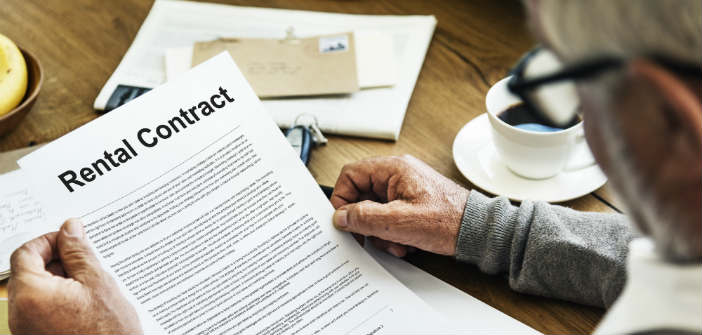After years of experience in this industry, if there is one thing that is very black and white, it should be the residential lease agreement. All parties to the lease should ALWAY be on the same page, informed, and aware of the lease terms. If, for example, the lease states that the tenant is to upkeep the yard, to what extent does that entail? My rule of thumb for this situation is this: At the beginning of the lease, present the yard in the condition you want the tenant to maintain it in. A good way to make sure the tenant understands the importance of the upkeep to current conditions is to tell them you have photos of the property that were taken on the move in date. That way, if there are any questions regarding how the property should be kept, you can always share the photos with them.
Related Article: What Do Property Managers Do?
Just last week Barrett Property Management, Inc. represented a Grass Valley investment property owner in Nevada County Small Claims Court. When the Grass Valley Tenant moved out, their security deposit was exhausted and there were charges due, which the Tenant disputed. I advised the property owner to file in small claims to recover these lost funds. When it was time to present our case to the judge everything was black and white because the lease and addendums that we had created were very clearly written. One of the disputes was over the propane tank. The tenant vacated the home and left the tank at 0%. The lease addendum clearly stated: “The current propane tank reading is at 100%. Upon vacating premises, Tenant shall have the propane tank filled to 100%. If Tenant fails to fill the tank to 100%, the cost to fill the tank will be deducted from their security deposit.” Not only was this very clear to the judge, but it was all very fair. Needless to say, we won the judgement.
Related Article: What Can I Deduct From A Security Deposit?
Moral of the story: Write you Nevada County leases and addendum with the thought in mind that you may have to argue your case in court!
As I was planning to write this blog post just this week, the below article by BiggerPocket.com hit my inbox! What great timing. Some key points in their article that are very applicable in writing a good lease and addendum(s):
-
Read Your Lease Through a Judge’s Eyes—Is it Fair? Just as I mentioned above, the Judge is not only looking for a clearly written lease, but also a fair lease. California laws often sides with the tenant, so ensuring that the lease terms are fair are half the battle when you end up in court!
-
Does it outline what to expect? Again, just as I stated above, make sure that any expectations of the tenant are clearly stated and understood at lease signing. If there are any gray areas, communicate with the tenant to arrive at an agreeable solution to make the terms more black and white.
Continue below to read BiggerPockets.com article: How to Craft Rental Lease Agreements That Reduce Tenant Turnover
How to Craft Rental Lease Agreements That Reduce Tenant Turnover
by Dave Van Horn | BiggerPockets.com

For many real estate investors, finding the right lease for rental property can be overwhelming. There’s almost an infinite number of templates available online, many of which are for different purposes. You can lease almost anything (i.e. cars, equipment, apartments, land, furniture, etc.).
There’s also contract law and other specific rules that apply depending on the state where your rental is located. For example, Pennsylvania has a plain language requirement, as well as laws that apply when there isn’t a written lease in place.
Of course, you should go through the proper channels to make sure your lease is lawful, whether that means consulting with a real estate attorney, a real estate broker, or other experienced landlords in your REI networking group. Or there’s the option of having an experienced property management company handle the leases, taking it off your plate almost entirely.
But while there’s plenty of information out there on how to structure your lease to best protect your interests as the landlord, is that really the sole purpose of your lease?
Read Your Lease Through a Judge’s Eyes—Is it Fair?
After working as a property manager for several years, I learned that there’s a difference between what’s written on the lease and what really happens when you find yourself in court with one of your tenants.
Instead of analyzing the legal implications of the contract itself, the judge may ask about the fairness of the terms set forth in your lease, how these terms were communicated, and what efforts have been exhausted in order to work things out with the tenant.
Also, some jurisdictions are more tenant-friendly than they are landlord-friendly. For example, some areas have things like rent control and a slow eviction process.
Even if the court does rule in your favor, in some cases it may not have much of a monetary impact. For example, if your rental is in a low-income area or your tenants don’t have any assets, there may be limited recourse (if any) for them not paying rent. Sure, they’d likely be evicted and it could damage their credit score, but that may not be much of a deterrent on its own.
Good Lease Agreements Keep You Out of Court
Really, by the time you, the landlord, take a tenant to court, you’ve already lost in terms of unpaid rent, legal fees, and having to deal with a bad relationship. The best thing by far is never having to go to court.
Personally, I like to think of my rental lease not only as a legal document, but also as a tool for creating a pleasant culture and for reducing turnover. I think this purpose is just as important, especially since turnover can dramatically cut into your overall yield.
How can you make your lease more effective at reducing turnover? How can you implement the culture you want?

Related: 38 Addendums Every Landlord Needs for a Battle-Ready Lease
3 Questions to Ask to Make Your Lease More Effective
1. It is reasonable for both parties?
There are landlord-friendly leases, and then there are neutral leases that are more reasonable for both parties. Over the years, I’ve found that neutral leases are the way to go and that most courts prefer to see these as well.
For example, are your late fees reasonable? Where I practiced property management, most judges frowned on late fees above 10 percent.
Do you give reasonable notice for changes to the terms/renewals?
Do you follow the appropriate protocol for security deposits?
Even if you are using a neutral lease, you can still include certain rules and regulations or even a description of how things should operate.
2. Does it define the relationship?
Personally, I think the most important function of a lease is that it communicates what the relationship should look like between the landlord and the tenant. As a landlord, you really want to demonstrate the core values of your operation and also explain how things should run..
Whether you manage the property yourself or through a property management company, you should outline where they can send rent, how they can contact you, how they can request maintenance, and maybe explain how you handle complaints.
Overall, a good lease will describe what communication will be like between you and your tenant.
Of course, you still need to get specific about what you’re offering as a landlord and what actions are required of the tenant.

3. Does it outline what to expect?
It’s important that the tenant has a clear understanding of not only what’s expected of them but also what they can expect from you.
In the lease, you can cover your policies on pets, use of common areas, renewal times, renter’s insurance, grace period, use of the property, smoke detectors, etc.
But you also want to cover what is included. What utilities will the tenant be responsible for and what will you cover as the landlord? These usually vary depending on the type of property. For example, in an apartment complex, shared utilities that don’t have a separate meter are typically covered by the landlord. This could be anything from water and heat to sewer and trash. Also, you’d be covering electric or whatever utilities are needed for common areas. In a single family residence (SFR), the tenant typically is expected to cover their own utilities.
